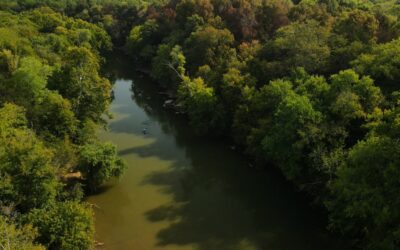In Tennessee, more than 1,400 plant and wildlife species, including the Red Squirrel, have been identified as being in greatest need of conservation.
As the old adage goes, an ounce of prevention is worth a pound of cure. So it applies to conservation of our nation’s wildlife, our greatest natural resources.
In late December, the much anticipated Recovering America’s Wildlife Act was introduced by Reps. Jeff Fortenberry (R-Neb.) and Debbie Dingell (D-Mich.). This legislation would direct $1.3 billion of existing revenue from oil and gas activities on federal lands and waters toward state-led efforts to prevent non-game species from becoming endangered. Of that $1.3 billion, our state’s wildlife agency—Tennessee Wildlife Resources Agency (TWRA)—would receive $20.8 million annually.
While TWRA is legally mandated to manage and conserve all species in the state, non-game species management remains effectively unfunded. The Recovering America’s Wildlife Act addresses that issue and enables the agency to manage species to prevent them from becoming listed as threatened or endangered.
Preventing Endangered Wildlife
Prevention costs a fraction of the tens of billions of tax dollars and lost private revenue that conserving a single endangered species can cost. Further, by taking a proactive, preventative approach, conflicts between the private and public sector are minimized—clear and present regulation dictate land use and impacted habitat restoration.
In Tennessee alone, more than 1,400 plant and wildlife species have been identified by the State Wildlife Action Plan of being in greatest need of conservation—more than 70 are federally listed as threatened and endangered species. Species at risk include the Northern Bobwhite Quail, the Chickamauga Crayfish, the Virginia Big-eared Bat, and the Red Squirrel.
Factors such as habitat loss, invasive species, and disease have taken a significant toll on birds, mammals, fish, amphibians, reptiles, butterflies, and bees in Tennessee and across the nation.
Proactive Management
Not only does the Recovering America’s Wildlife Act fund proactive conservation efforts, but it does so at the state level. By putting funds in the hands of the state and requiring only a 25 percent match, the legislation allows states the autonomy to address the needs identified in the State Wildlife Action Plans as is most fitting for the state. That means, Tennessee wildlife remains our wildlife and the obligation to conserve it remains ours, too.
In Tennessee, proactive management has already proven effective in stabilizing and growing populations of species in decline, like the Loggerhead Shrike, and those on the brink, such as the Alabama Lampmussel. This legislation will help keep common species common and address the needs of those that have been on endangered or threatened species lists—some for several decades.
We urge Tennessee’s members of the House, along with Senators Alexander and Corker to enthusiastically support this bill. By addressing Tennessee’s and the nation’s wildlife and natural resources now—using preventative and proactive measures—through support of the Recovering America’s Wildlife Act, we ensure future generations of Tennesseans will enjoy the beauty and wonder of our great outdoors.
Featured photo by Jared Belson




